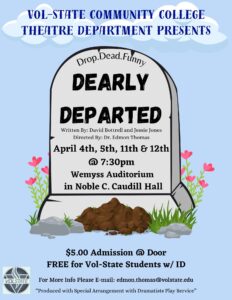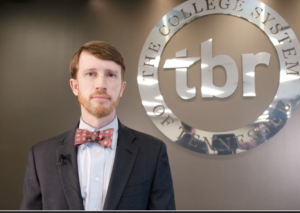Last updated on February 1, 2016
By Mackenzie Border// Staff Writer
Peter Johnson, instructor of History, gave a lecture at Volunteer State Community College on Monday, March 23, in the Carpeted Dining Room. Johnson spoke of the rumors of Charles Lindbergh being an American Nazi during the presidency of Franklin Delano Roosevelt (FDR).
When asked how he decided to do a lecture on the subject, Johnson said, “My specialty is World War II, and I was reading a book on Lindbergh vs. FDR, and in it were references to Lindbergh having an association with high ranking Nazi officials. This started me thinking and doing some other reading on the subject which eventually led to the lecture.”
Johnson began his lecture by describing the state of the country after the events of World War I, continuing into the growing popularity of aviation.
“After the war, people began to realize aviation as the next step, and Charles Lindbergh is there promoting aviation at the same time there is a $25,000 prize for the first person to fly across the Atlantic Ocean,” said Johnson.
Johnson then discussed how Lindbergh began to criticize FDR’s administration upon his return to the United States after living in Europe for a few years, and how Lindbergh’s acceptance of Germany’s highest civilian award from a high-ranking Nazi official created suspicion in the FDR administration.
“So, was Charles Lindbergh a Nazi?” Johnson asked the audience before he began to elaborate on the events that led to the rumors of Lindbergh’s associations with the Nazis.
Johnson discussed how during Lindbergh’s time in Europe, he was invited to Germany to examine the ME-109, Germany’s top fighter plane, and how Lindbergh sent his findings to American Ambassador Robert Kennedy.
During his trip to Germany, Johnson said Lindbergh was invited to dinner with high-ranking Nazi officials, where he was given the Service Cross of the German Eagle, the highest civilian award.
“Lindbergh believed that it would have caused more trouble if he had turned down the award instead of accepting it, so he accepted the award from the Nazis,” said Johnson.
“After his return to the United States, Lindbergh testified before Congress that the policies of the FDR administration were leading America into a war that the country was not prepared for.
“President Franklin Delano Roosevelt became convinced that Lindbergh was a Nazi, and soon he requested for Lindbergh’s phone to be wiretapped and have surveillance placed on him,” said Johnson.
“So was Charles Lindbergh an American hero or American Nazi?” Johnson asked the audience once again before reviewing the suspicious events that led to the accusations.
Johnson concluded the lecture by detailing how the FBI file regarding the rumors had no evidence that Lindbergh was an American Nazi, but he still left the topic open for debate.
“History is filled with stories of men and women who have accomplished great things.
Some of these people have characters that are not admirable, but Charles Lindberg is someone who took on the challenge of flying across the Atlantic and accomplished that incredible feat. When he came back to America, he was an instant celebrity and used his popularity to promote commercial aviation.
“He fell into odds with FDR over the President’s push for intervention into the war in Europe. Lindberg stuck to his convictions which is something I feel people should get from this lecture,” said Johnson.
“It was beneficial. Both sides were presented well, and I like the idea of an interpretation,” said Kendall Bell, a Vol State student.
“It was extremely informative on a topic that I was not previously aware of, and I think it opened my eyes. I understood what was discussed, and I enjoyed the time spent here at the lecture,” said Luke Rhodes, a Vol State student.




Comments are closed.